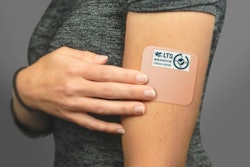
You may have seen the recent news that a drug company transferred its valuable patents to a Native American tribe in an effort to prevent the patents from being challenged. Is that what all the cool kids are doing these days? No, but they might start, depending on how some court decisions turn out.
Reports emerged in September that Allergan transferred patents covering Restasis, a drug for treating eye conditions, to the Saint Regis Mohawk Tribe in New York State. According to the New York Times, Allergan will pay the tribe millions of dollars and give them ownership of the patents, while the tribe in turn will lease the patents back to Allergan for it to use in exchange for more millions paid to the tribe in annual royalties. The New York Times notes, “In exchange, the tribe will claim sovereign immunity as grounds to dismiss a patent challenge….”
Pioneer or first-of-their-kind drugs are usually protected by one or more patents, and their makers are obsessive about trying to maintain their patent protection, which very often keeps competing generic drugs off the market. On the other hand, generic competition allows for more drug makers to participate in the market and usually drives drug costs down for consumers.
The validity of the patents involved was challenged by competitors in front of a review panel in the U.S. Patent and Trademark Office (PTO), but also is the subject of a case in federal court. The PTO challenge is supposed to be a quicker and cheaper way to challenge patents than suing in federal court, so generic drug makers like it as a more efficient way to muscle onto the market.
Allergan’s goal in making the transfer was to avoid having the validity of its Restasis patents reviewed by the PTO panel and the federal court, both of which have recognized that states’ sovereign immunity overrides some patent challengers’ rights. In other words, thanks to the tribe’s sovereign immunity, it can’t be sued unless it consents to be, and the tribe hasn’t consented to be sued for these matters.
In a setback for Allergan, the judge in the federal court case recently ruled that the patents were invalid, but he did not rule on the legality of the transfer. Allergan is appealing that ruling.
Chicago patent attorney Jack Fassnacht offered the following perspective: “State universities have been known to claim sovereign immunity from challenges in federal courts to their university-owned patents.The difference, of course, is that universities generally develop their own patents in-house, whereas the Indian tribe is merely buying them.”
He adds, “We don’t yet know whether this strategy will work for Allergan. There are exceptions to the law regarding sovereign immunity, and the perception among some is that the transfer of the Allergan patents is a sham intended solely to avoid legal challenges, and that could work against Allergan.”
Time will tell if this creative move will catch on and proliferate with other companies and tribes making similar arrangements. Meanwhile, more uncertainty swirls: Another court action, a challenge to the constitutionality of that PTO review process itself, is also underway before the U.S. Supreme Court, and if it succeeds it would invalidate that process altogether.






















